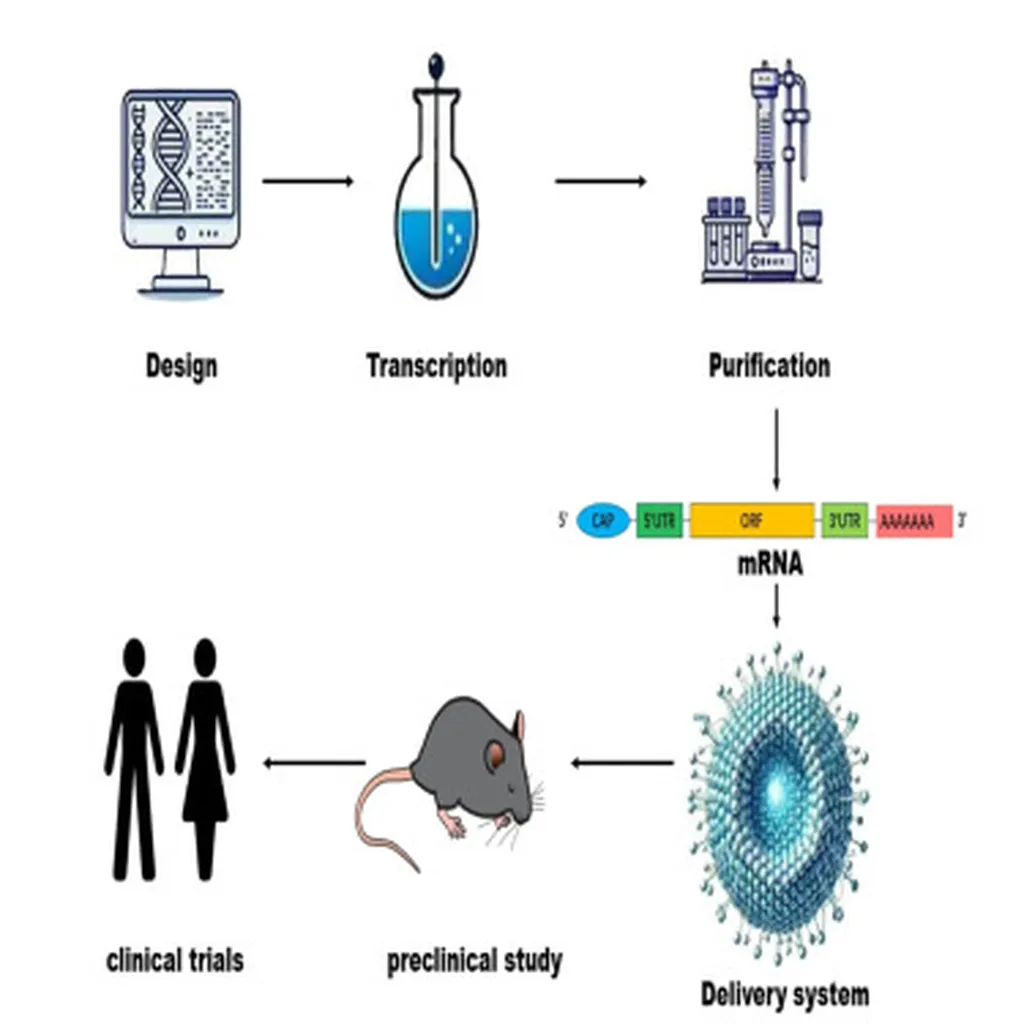In a groundbreaking development for the swine industry, researchers have designed a novel mRNA vaccine that promises robust protection against porcine deltacoronavirus (PDCoV), a threat to global swine populations. Led by Ruiming Yu at the State Key Laboratory for Animal Disease Control and Prevention, College of Veterinary Medicine, Lanzhou Veterinary Research Institute, Chinese Academy of Agricultural Sciences, Lanzhou University, the study introduces a vaccine that could revolutionize how we approach porcine intestinal coronavirus infections.
The research, published in the Journal of Virology (Chinese name: 病毒学杂志), details the creation of an mRNA vaccine, SMN-mRNA–LNP, which expresses three major structural proteins of PDCoV—spike (S), membrane (M), and nucleoprotein (N)—from a single mRNA. This innovative approach was shown to induce significantly stronger immune responses in piglets compared to traditional inactivated vaccines.
“Our findings demonstrate that SMN-mRNA–LNP is a novel and highly efficacious candidate vaccine against PDCoV,” said Ruiming Yu. “The design strategy of single mRNA-LNP simultaneously delivering multiple viral antigens provides a new idea for the development of porcine intestinal coronavirus mRNA vaccine in the future.”
The study began with the development of S2P-mRNA–LNP, which expresses the full-length S2P protein of PDCoV. Animal experiments showed that this vaccine induced stronger humoral and cellular immune responses in mice than an inactivated vaccine. Building on this success, the researchers introduced the P2A self-cleaving peptide into the design, creating SMN-mRNA–LNP. This vaccine allows the simultaneous expression of the three major structural proteins of PDCoV from a single mRNA.
Immunization experiments in piglets revealed that both S2P-mRNA–LNP and SMN-mRNA–LNP induced robust humoral immune responses. Notably, SMN-mRNA–LNP conferred superior active immune protection in piglets (5/5) compared to S2P-mRNA-LNP (4/5). Further experiments in pregnant sows showed that piglets born to SMN-mRNA–LNP-vaccinated sows acquired high levels of IgG, IgA, and neutralizing antibodies through the ingestion of colostrum, conferring complete passive protection (5/5).
The protective efficacy of SMN-mRNA–LNP was markedly superior to that of the inactivated vaccine, highlighting its potential as a future vaccine candidate. The study’s findings suggest that this novel mRNA vaccine could play a crucial role in the prevention and control of PDCoV, offering a safer and more effective alternative to traditional vaccines.
As the global swine industry faces increasing threats from emerging viruses, the development of innovative vaccines like SMN-mRNA–LNP is more important than ever. This research not only provides a new strategy for combating PDCoV but also sets the stage for future advancements in mRNA vaccine technology for other porcine intestinal coronaviruses.
The implications of this research extend beyond the immediate benefits for swine health. As the world grapples with the challenges of emerging infectious diseases, the development of effective vaccines is a critical component of global health security. The success of SMN-mRNA–LNP demonstrates the potential of mRNA technology to address these challenges and protect both animal and human health.
In the words of Ruiming Yu, “This study provides a new idea for the development of porcine intestinal coronavirus mRNA vaccine in the future.” As researchers continue to explore the capabilities of mRNA technology, the future of vaccine development looks brighter than ever.

